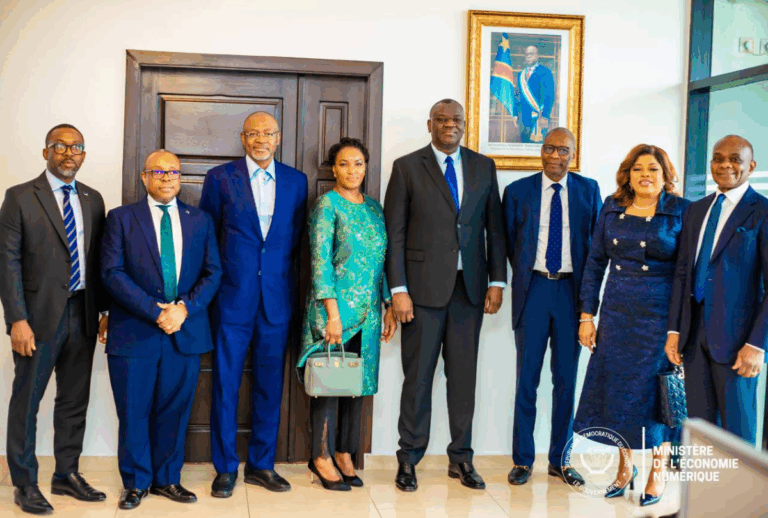Plans are underway for Fidelity Bank to expand into the Democratic Republic of Congo (DRC), a move expected to deepen financial inclusion and support the country’s fast-growing digital economy.
During a recent meeting in Kinshasa, the bank’s chief executive, Nneka Onyeali-Ikpe, engaged with the Minister of Digital Economy, Augustin Kibassa Maliba, to discuss the project. She highlighted that Fidelity’s DRC operations would concentrate on channeling funds into digital initiatives while broadening access to banking services.
If completed, the expansion will make Fidelity Bank the DRC’s 16th active lender and the fourth Nigerian-owned institution, alongside Access Bank, FirstBank, and United Bank for Africa (UBA). For the Congolese government, the entry of another Nigerian bank is expected to increase funding avenues for SMEs, tech startups, and national digital transformation programs. Fidelity is already collaborating on a satellite launch project aimed at improving internet penetration and strengthening the digital economy.
A Market Ripe for Growth
Despite a population exceeding 100 million, the DRC’s banking sector remains underdeveloped. As of 2024, only about 15 commercial banks operated in the country, mostly subsidiaries of foreign groups.
Banking penetration stood at just 6% in 2022—less than half the continental average of 15%. Lending to the private sector was equally limited, accounting for 9% of GDP in 2023 compared to Africa’s typical range of 25–28%. Data from the Central Bank of Congo shows that deposits reached $12.87 billion by May 2024, with households contributing around one-third of the total.
With its entry, Fidelity Bank hopes to leverage experience in SME support and digital banking to unlock opportunities in one of Africa’s least-served financial markets.

